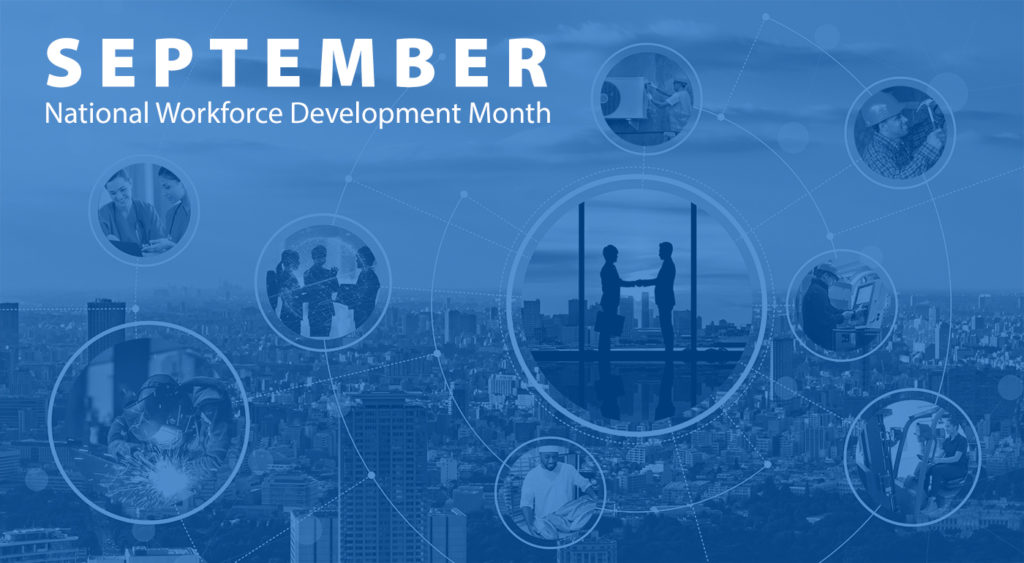September is National Workforce Development Month

I love September for a variety of reasons, including the start of college football. If you haven’t noticed, my Sooners are 2-0 so far this season. BOOMER – SOONER!
But as much as I love college football, I love even more that the United States Senate passed a bipartisan resolution designating September as “National Workforce Development Month,” recognizing the growing skills gap and supporting the promotion of federal workforce development investments to ensure our economic competitiveness in the 21st century economy.
The Pew Research Center released an article last month showing that teens today only spend 26 minutes a day, on average, doing paid work during the school year compared to 57 minutes in the mid 1990s. The numbers aren’t much better for summer jobs. Even more concerning, today, 11 million young people ages 16-29 are neither employed nor enrolled in school. It’s more important today than ever that we provide employment skills to our young people.
The same Pew Research article also highlighted the importance of engaging older adults in workforce development as well. In July of this year, 19.8% of U.S. adults ages 65 and older – nearly 10.5 million people – reported being employed full- or part-time, continuing a steady increase since at least 2000. An analysis of 2018 labor force data found that 29% of Boomers ages 65 to 72 were working or looking for work. I’m thankful for our workforce operations, such as One Stop Centers, that serve all populations of a community, including older adults, in finding employment.
Today, Eckerd Connects’ Workforce Development provides career pathways and support to adults, dislocated workers, and youth ages 16 and older across 110 programs in 11 states and the District of Columbia. Eckerd Connects Workforce Development is working hard to keep America’s workforce educated and engaged.
I’m extremely proud of the work that our organization is doing to ensure that every client has the opportunity to succeed by providing them skills to ensure they have employment that will support them and their family, decreasing the odds that their children, grandchildren and future generations will end up in social welfare systems such as juvenile justice and child welfare.
Sincerely,
David Dennis
Eckerd Connects
President and CEO
